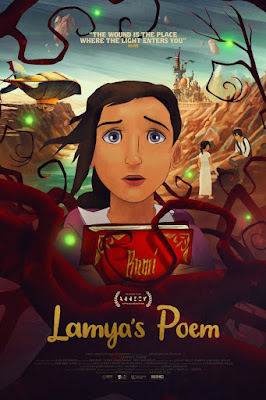The
term “world’s policeman” is often used in a derisive, Keystone Cops sort of way,
but couldn’t this world use a bit more law and order? Maybe America does not
necessarily have to fulfill those duties, but who else has the sufficient
wherewithal? China? We have seen how they police their own people and it is
highly problematic. Johan Norberg, Cato Institute Fellow and Executive Editor
of Free to Choose Media chronicles America’s recent trend towards international
disengagement and assesses the long-term implications in Is America in Retreat (trailer here), directed by Kip
Perry & Elan Bentov, which airs throughout the week on select PBS stations.
If
there is one single pivotal event in recent history for the commentators in Retreat, it would undeniably be the Obama
Administration’s dangerous decision not to enforce its own “red line”
prohibiting Assad from using chemical weapons against his own people, meekly
accepting a “Russia deal” instead. Retreat
explicitly links the “red line” capitulation to the subsequent refugee crisis,
as well as the Putin’s military aggression in Ukraine. As Bret Stephens argues:
“Bashar
Assad crossed that line by killing a thousand people with Sarin gas in Damascus.
There were no consequences. Vladimir Putin observing what happened in Syria
took Crimea in the space of a couple of days. Even then, there were almost no
consequences.”
Norberg
travels (as near as he can to) to three geopolitical flash points, where the
lack of American leadership can be directly felt. The first two are indeed
Ukraine and Syria (represented by recently arrived migrants in Germany), which
receive plenty of media attention. However, the third flash point, the South
China Sea, is arguably the most critical, but under-reported.
One
of the big take-aways from Retreat is
the role first Britain and then the U.S. have played ensuring safe navigation during
their respective Pax Britannica and Pax Americana. Throughout the last seventy
years, the U.S. Navy has frequently mounted “Freedom of Navigation” operations
through international waterways that overreaching nations have claims in
defiance of international law, much like the British did during the prior
century. In each case, the British and Americans have been the only nation powerful
enough to do this kind of maritime policing, but we also stood to gain the most
by maintaining the unfettered flow of international trade.
However,
American foreign policy now officially takes no positions regarding territorial
claims in the South China Sea, which is obviously an open invitation to China
to bully its neighbors. Norberg shows us the human cost of our deference to the
PRC, traveling with a crew of Filipino fisherman who are chased out of their
own waters by the Chinese Cost Guard.
Another
big takeaway from Retreat is its
application of James Q. Wilson’s Broken
Windows Theory to foreign policy. It makes a convincing case we have reaped
greater international instability and human rights catastrophes by ignoring
smaller ones, like the poison gas attacks in Syria or Beijing’s island grabs.
Unfortunately, it does not leave viewers feeling optimistic. Despite talking
like an internationalist, Obama followed a policy of reckless retreat more
often than not. Yet, rather perversely, he has been succeeded by a President
who frequently falls back on “America First” rhetoric.
It
is rather ironic the generally libertarian Free to Choose Network and the “Classical
Liberal” Norberg would make this case for a more engaged U.S. foreign policy,
but it also makes their arguments harder to ignore. Provocative but soundly
reasoned, Is America in Retreat is
highly recommended for all American citizens concerned about our position in
the world. It airs in various cities throughout the week, including this
Thursday (3/30) on Baltimore’s WMPB and Saturday afternoon (4/1) on New York’s
WNET.









